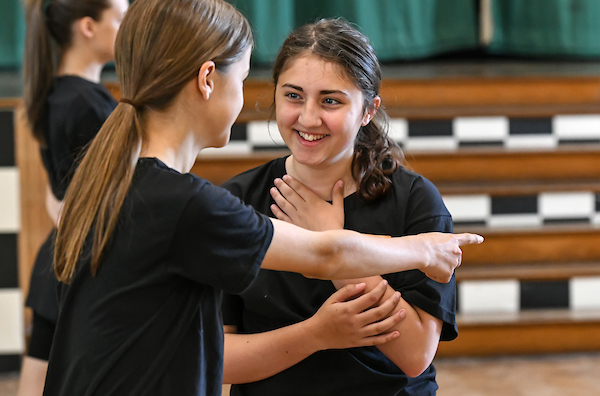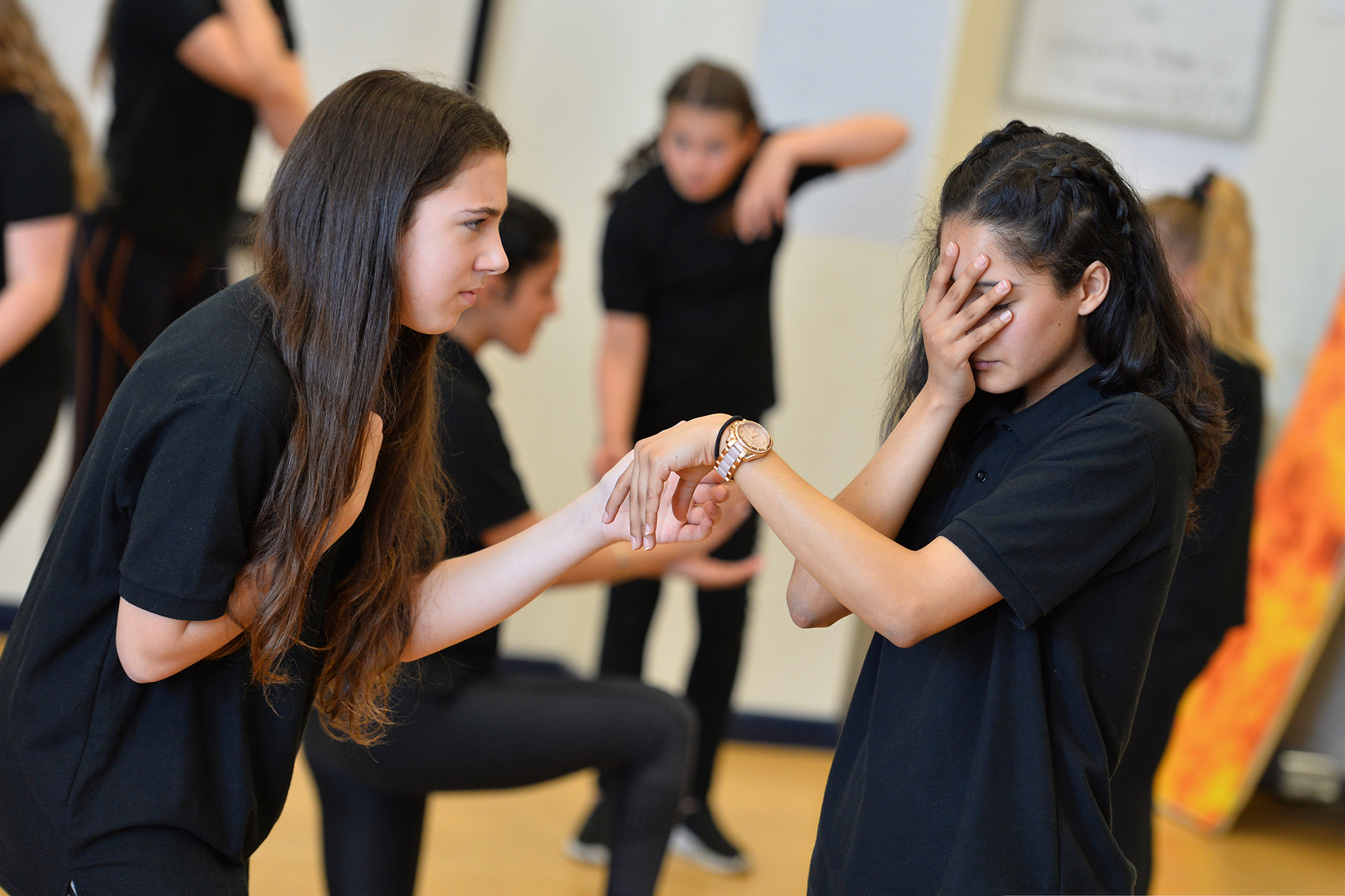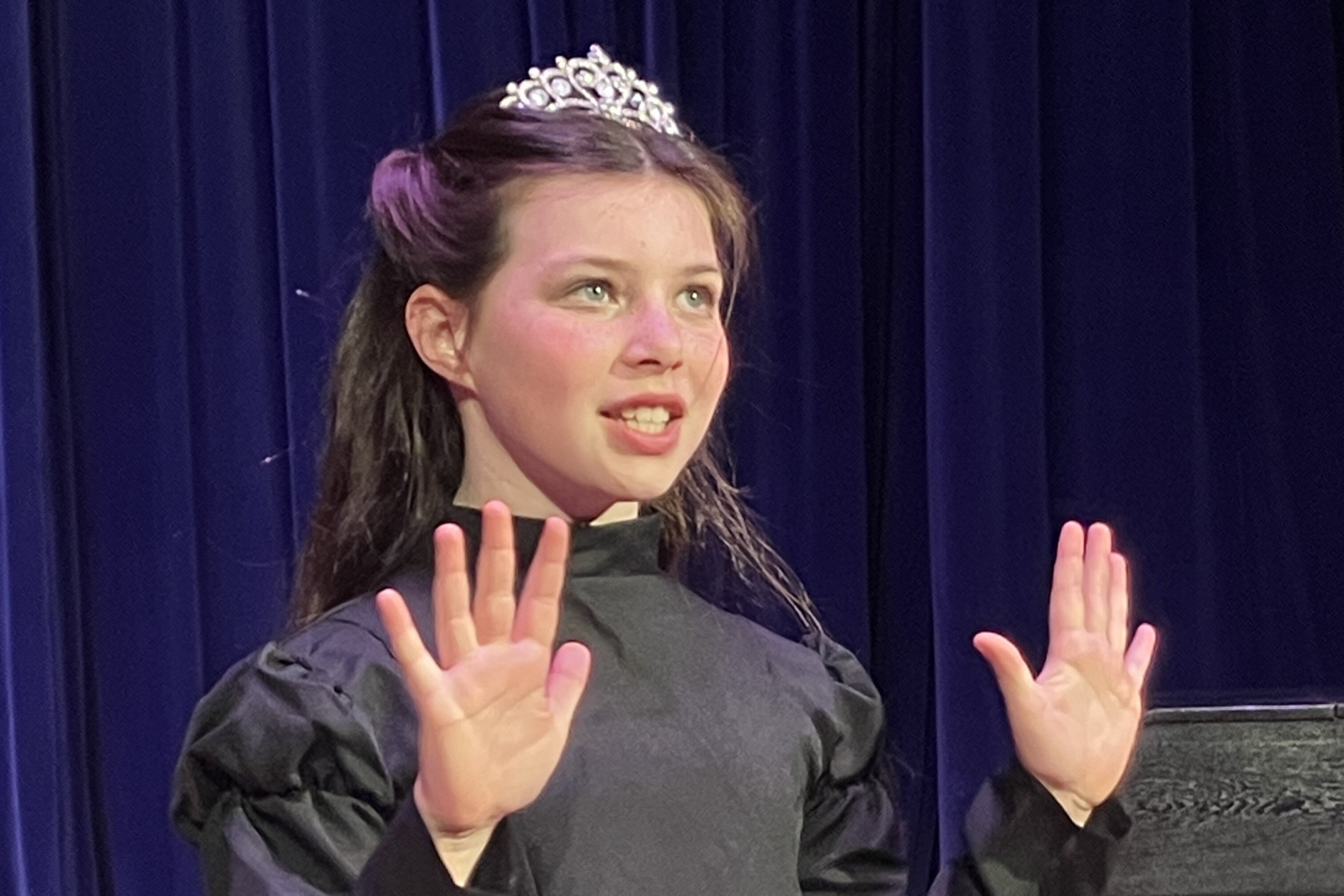
Approaching Drama Tasks: Improvisation
BY: Nicola King
19 October 2022
Improvisation is an important technique used by actors to help them prepare for a performance. It is often used as an ‘off text’ exercise to explore character and relationships and the themes, issues, and ideas in a play. It is also integral in developing material in devised work. It is an imaginative exercise that draws on the actor’s knowledge and understanding of a text or theme and requires a range of performance skills.
In this blog we will explore how improvisation is included in our face-to-face Acting (2020) specification and how teachers can help prepare candidates for this task.
Improvisation tasks offer candidates the opportunity:
- to be fully in the present in a scene, reacting truthfully to an evolving imagined situation, to other characters (if relevant) and to the imagined physical environment
- to demonstrate knowledge and understanding of their chosen extracts and characters, to work ‘off text’ – in other words to apply that knowledge and understanding to a new situation or interpretation.
- to display an imaginative response to a suggestion or stimulus and to demonstrate additional performance skills while doing so e.g. listen and respond in role or sustain a scene.
During the exam, the examiner will use the Improvisation task to assess a candidate’s ability in one or more of the above, drawing specifically on the context of the rehearsed pieces presented. They will consider what would most benefit the candidate in terms of illustrating their fullest range of skills for that particular grade.
The starting point for the improvisation task will always be made clear and will allow the candidate to be actively engaged in acting in the present moment rather than reminiscing or describing. When setting the improvisation task in an exam, the examiner will select a stimulus that is within the grasp of the candidate’s ability. There are no tricks or hidden agendas. The examiner is not looking for a bravura performance - just a simple, clear, imaginative, and direct response to the stimulus, and the candidate’s ability to be ‘in the present’ in creating a character, telling a story, or exploring a relationship with their environment.
We are also interested in how a candidate responds to the space: their staging – the use of levels and proxemics or in their ‘dialogue’ with the props and images created, and in the emotions and sensations expressed physically and spatially. The examiner might consider to what extent the candidate is awake to their real or imagined surroundings and the impulses around them.
Improvisation as a Key Skills Task is first introduced at Grade 2 for Solo candidates and Grade 6 for Pair exams.
At Foundation level – Grades 2 and 3, candidates need to demonstrate an ability to improvise an imagined situation given by the examiner, confidently, with some coherence and clarity and an awareness of audience.
At Intermediate level (Grades 4 and 5) and Advanced level (Grades 6 and 7) the tasks set reflect the developing emotional maturity of candidates and offer them the opportunity to display more sophisticated performance skills and to demonstrate a more complex imaginative awareness of the dramatic possibilities inherent in their chosen pieces. Candidates might be asked to: Act out the role of a different character from one of their performed scenes or give a completely different interpretation of a character they have already performed; to imagine and present possible scenarios that may occur before, during or after the events in the performed piece; to turn a large, public performance into a more intimate one e.g. an examiner might ask the candidate to 'Take that speech you have just acted and now imagine that you are saying the same words quietly to a friend while travelling on a bus, and think about how this changes the scene’ – or vice versa.
In advanced Solo grades, candidates might also be given a situation that picks up the dominant emotion of a performed piece (e.g. jealousy in Othello, ambition in Macbeth) to present a scene which explores that emotion in a different context.
For Acting Pair exams, at Grades 6 and 7, candidates are asked to develop an improvisation, based upon a plot outline provided by the examiner 15 minutes before the exam. Examiners will be looking for evidence of mutual support by the performers and creativity in the consideration of motivation, behaviour, and language, and to what extent the candidates create a shared reality. Have they created the same world? And how skilful is each candidate at trusting themselves and their impulses? In other words, the examiner is looking for levels of assurance and the ability to present complexity.
At Grade 8, for both Solo and Pair exams, the candidate(s) 'works with the examiner on a modification of one of the pieces - the stimulus is provided by the examiner'. 'Modification' means the candidate is invited to perform the piece again, using the exact same words, but the examiner will offer a different situation, circumstance, and intention. It is an opportunity to see the candidate re-imagine that speech, develop their character, and to see the character reacting truthfully to a very different set of internal and external circumstances - but speaking the same words. The stimulus offered will specifically allow the candidate to perform the speech in a way that reveals an aspect of their work which may not hitherto have been demonstrated.
In improvisations at any grade, candidates need not feel that they have to bring the work to some kind of meaningful or ingenious conclusion; nor that they need to entertain, please or amuse the examiner. They should trust that if their performance is truthful, it will be interesting and that is enough. What is being assessed is the candidate’s ability to engage with and present a character within an imagined world – and to sustain that character until asked to stop. The key is to slow down, to always say ’yes’ to developments in the scene, and to remain in the here and now, responding and remaining true to the character they’ve created.
For more information on Improvisation watch this fantastic video with our examiner Iain Reekie.
Related posts
BY: Tori Longdon




Comments & Replies